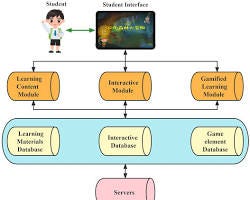Which country is the most advanced in computer technology?
Exploring Technological Prowess: Which Country Leads in Computer Technology?
In the ever-evolving landscape of computer technology, nations strive to assert their dominance, each contributing uniquely to the global tech ecosystem. We delve into the intricate tapestry of technological advancements to determine which country stands out as the most advanced in computer technology.
United States: A Tech Powerhouse
The United States has long been hailed as a tech powerhouse, housing Silicon Valley, the epicenter of innovation. Home to industry giants like Apple, Google, and Microsoft, the U.S. has been a breeding ground for cutting-edge technologies. The ecosystem here fosters a culture of innovation, with startups and established corporations alike pushing the boundaries of what's possible in the digital realm.
China: Rising Tech Titan
In recent years, China has emerged as a formidable player in the global tech arena. With companies like Huawei, Alibaba, and Tencent making waves, China has rapidly transitioned into a technology powerhouse. The country's strategic investments in research and development, coupled with a vast pool of skilled engineers, position it at the forefront of computer technology advancements.
South Korea: Technological Marvel
South Korea has carved a niche for itself in the tech world, boasting a robust infrastructure and a population deeply immersed in digital culture. Home to tech giants Samsung and LG, the nation has consistently pushed the boundaries of innovation, particularly in the fields of semiconductors and consumer electronics.
Japan: Pioneering Technological Excellence
Japan, with its rich history of technological innovation, remains a key player in the global tech landscape. The country's emphasis on precision and quality has resulted in groundbreaking advancements in robotics, artificial intelligence, and electronic components. Japanese companies like Sony and Toyota continue to set global benchmarks.
Germany: Engineering Innovation
Known for its precision engineering, Germany has earned its place in the global tech hierarchy. The country's commitment to research and development, coupled with a strong emphasis on quality, has led to significant contributions in fields like automation, manufacturing, and automotive technology.
Israel: Start-Up Nation
Despite its small size, Israel has earned the moniker of the "Start-Up Nation." Renowned for its innovation ecosystem, Israel has produced a disproportionate number of successful tech startups. The country's focus on cybersecurity, software development, and artificial intelligence has garnered international acclaim.
Factors Influencing Technological Advancement
Understanding the factors that contribute to a country's technological advancement is crucial. A combination of government initiatives, investment in education, research and development, and a supportive ecosystem for startups plays a pivotal role. Countries that prioritize these elements often find themselves at the forefront of computer technology.
Conclusion: A Global Tapestry of Tech Prowess
In the quest to determine the most advanced country in computer technology, it becomes evident that the landscape is diverse and dynamic. Each nation contributes uniquely, creating a global tapestry of tech prowess. While the United States, China, South Korea, Japan, Germany, and Israel stand out, it is the synergy of factors that propels them forward.









